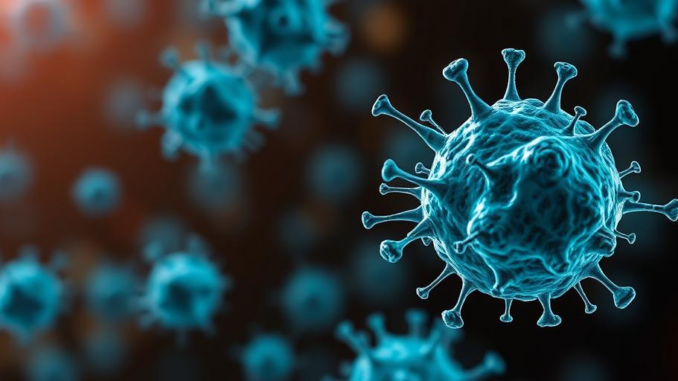
Summary
Scientists uncover a cause of leptin resistance and a potential reversal method in mice, offering new hope in the fight against obesity. This breakthrough involves the drug rapamycin, which restores leptin sensitivity and leads to significant fat loss with minimal muscle impact. The research paves the way for potential new obesity treatments targeting leptin signaling.
Secure patient data with ease. See how TrueNAS offers self-healing data protection.
** Main Story**
Okay, so there’s been some seriously interesting stuff coming out of Rockefeller University lately, building on their original discovery of leptin. Turns out, they’ve cracked a big piece of the puzzle when it comes to obesity. Specifically, they’ve identified a neural mechanism behind leptin resistance and, get this, potentially reversed it in mice.
The Leptin Lowdown
Now, you probably know leptin, it’s the hormone that tells your brain you’re full, right? Produced by fat cells, in lean people, the system works like a charm. But, and this is a big but, for about 90% of obese individuals, that signal? Totally lost in translation. It’s leptin resistance, and it’s been a real head-scratcher since its discovery back in ’94.
The ‘Aha!’ Moment
So, what did they find? Well, in these leptin-resistant mice, two amino acids – methionine and leucine – kind of go haywire when leptin shows up. These amino acids then kickstart a molecule called mTOR, which becomes supercharged in specific brain areas of the obese mice. That hyperactivity? It screws up leptin signaling, causing the resistance in the first place. And here’s a kicker: they think constant high levels of leptin, a bit like insulin in type 2 diabetes, actually causes leptin resistance over time. Makes sense, doesn’t it?
Rapamycin: A Potential Solution?
This is where it gets really interesting. Remember rapamycin? The drug they use to prevent organ rejection? It can restore leptin sensitivity in mice, apparently. By inhibiting mTOR, it effectively resets their sensitivity to leptin. What’s even cooler is that they saw significant fat loss without the muscle loss you often see with diets or meds like Ozempic. I mean, that’s huge! Think about the potential for targeted obesity treatments. Now, it’s still early days, pre-clinical stage and all that, but it’s a major step towards really understanding, and possibly overcoming, leptin resistance. What if this could translate to humans? It could be a game changer. But, of course, safety is paramount. We don’t want to jump the gun here. We need further research to know the efficacy of using Rapamycin to combat obesity.
What Else Can You Do?
Okay, rapamycin is exciting, but it’s not the whole story, is it? Lifestyle still plays a massive role. We can’t forget the fundamentals. Think of it as a holistic approach. The following points are some of the changes you can make to your lifestyle:
- Dietary Changes: Load up on fiber, whole grains, lean protein, and healthy fats. Ditch the processed stuff, sugary drinks, and excessive saturated fat – that junk fuels inflammation and makes leptin resistance worse. Embrace those anti-inflammatory foods: berries, fatty fish, avocados, leafy greens… you know the drill.
- Stress Management: Stress cranks up cortisol, and cortisol messes with leptin signaling. Yoga, meditation, deep breathing, good sleep – these are non-negotiable if you want to manage stress effectively. Seriously, prioritize sleep!
- Exercise: Gotta get moving! Regular exercise boosts leptin sensitivity and regulates hunger hormones. Mix cardio with strength training for best results.
- Prioritizing Sleep: I can’t stress this enough. Lack of sleep wreaks havoc on your hormones, including leptin. Aim for 7-9 hours of quality sleep. Your body (and your brain) will thank you.
A Word to the Wise
Look, I know there are tons of supplements out there claiming to fix leptin resistance. Before you try any of them, chat with your doctor, okay? There may be underlying issues—thyroid problems, gut imbalances—that need addressing first. And just remember, leptin resistance is complex. What works for one person might not work for another. A personalized approach, in my opinion, is always best.
So, yeah, this research is a big deal. Understanding the neural mechanisms and the potential of rapamycin is a significant step. But remember, it’s a piece of the puzzle. Combined with solid lifestyle changes, it offers real hope for better ways to fight obesity and the health risks that come with it. Keep in mind this is only March 8th, 2025. Research changes rapidly and this may already be outdated when you read it!


So, constant high levels of leptin cause leptin resistance? Does this mean my “intuitive eating” strategy of constant snacking is actually making me *more* hungry? Asking for a friend, obviously.
That’s a fantastic question! The research suggests that constantly elevated leptin levels might indeed contribute to resistance. It highlights the complexity of our bodies and how strategies like intuitive eating need to be carefully considered. Perhaps focusing on nutrient-dense foods during meals could help regulate leptin better than constant snacking?
Editor: MedTechNews.Uk
Thank you to our Sponsor Esdebe
Rapamycin, huh? Sounds like the next big thing after kale smoothies. Maybe we can all get organ rejection AND lose weight at the same time! Multitasking for the win! Though, I might stick with leafy greens for now.